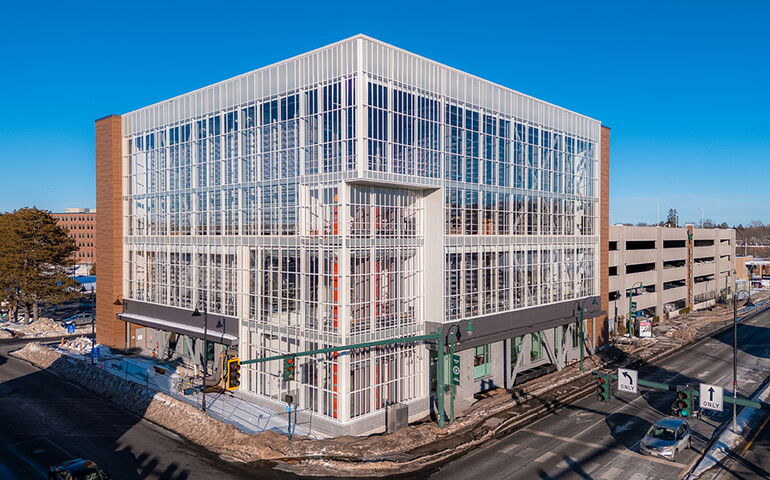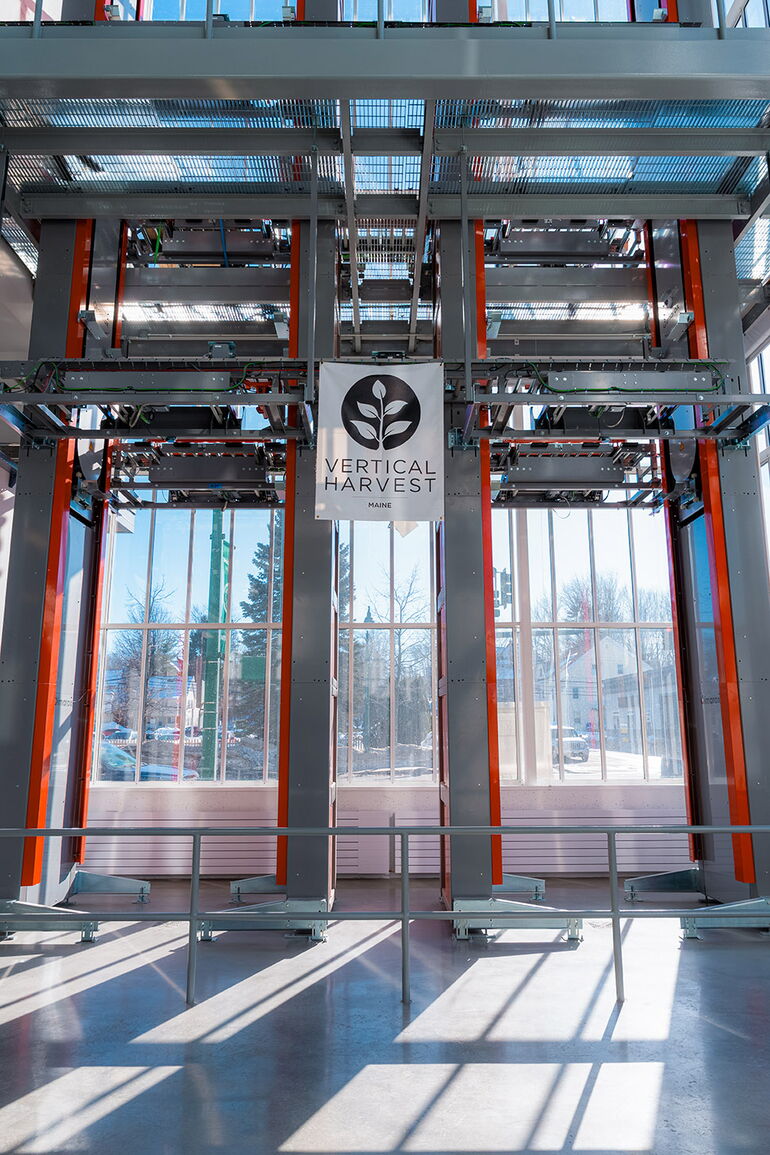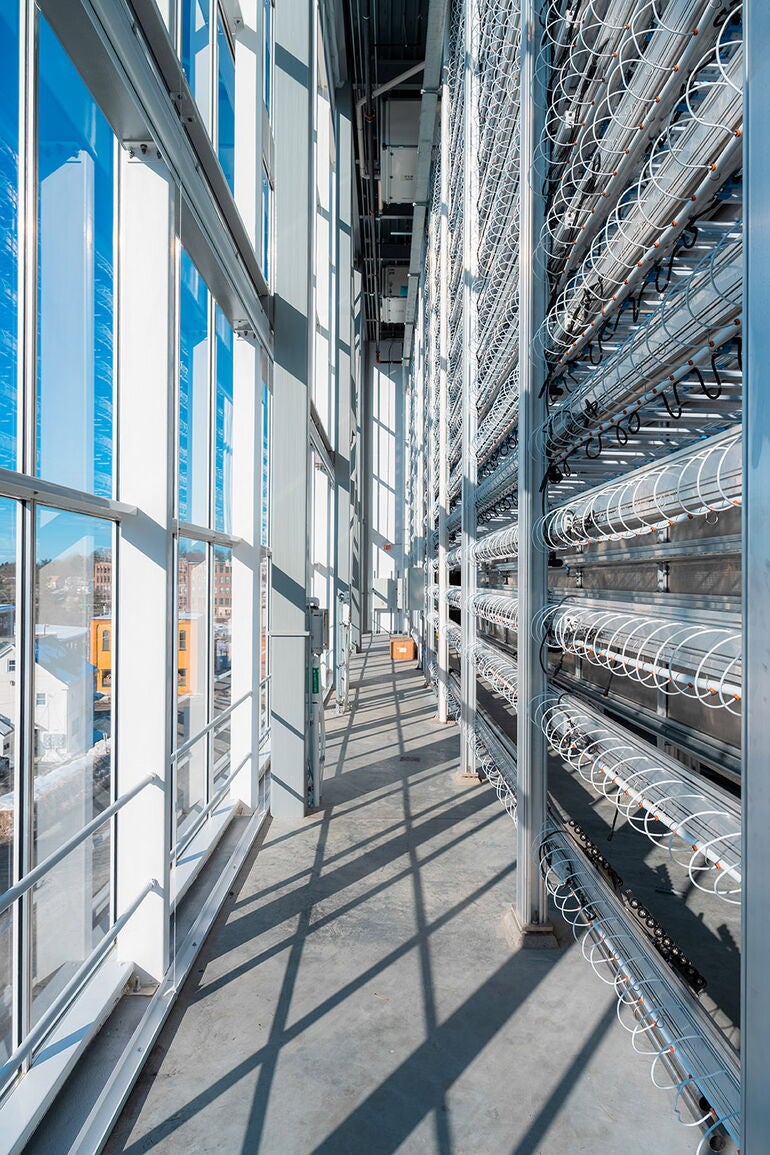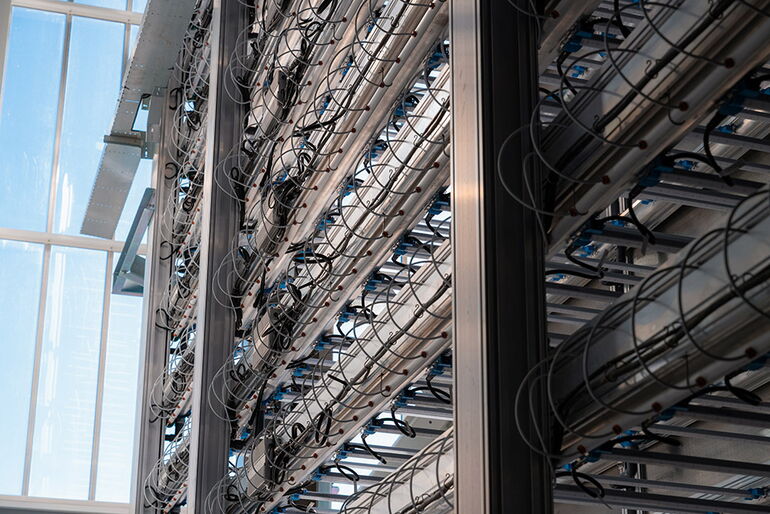MEREDA 2024 Notable Project: Vertical Harvest, Westbrook
The Vertical Harvest building and project is part of a new concept for vertical farming in urban environments. The building site was a former parking lot in Westbrook's city center that now houses a four-story, 52,000-square-foot farm capable of producing 2 million pounds of fresh produce annually. An attached parking garage replaces a surface lot.
The site will use advanced hydroponic farming techniques. The building’s design integrates complex HVAC systems to maintain optimal growing conditions, necessitating meticulous coordination during construction.
Developed in partnership with the city of Westbrook and designed by Harriman, a Portland-based architecture and engineering firm, the project aims to address local food scarcity and promote sustainable urban agriculture.
The project also aims to reduce the amount of physical area and resources required to grow produce at an industrial scale, especially in places that have weather seasonality like Jackson Hole, Wy., (site of Vertical Harvest's first such project) and Westbrook.
Vertical Harvest in Westbrook is the first vertical farm of its kind in the region, addressing food scarcity and sustainability in Maine.
The farm will use 85% less water than traditional methods, conserving this critical resource while ensuring year-round production of fresh, nutrient-rich produce. The energy-efficient systems are designed to minimize waste and maximize yield. The urban location of the farm reduces transportation emissions by delivering fresh produce directly to local markets, schools, hospitals and restaurants.
In addition to supplying year-round produce, Vertical Harvest ’s inclusive employment model creates opportunities for individuals with intellectual and physical disabilities who are often underrepresented in the workforce.
This fosters a more equitable community while demonstrating the potential of social enterprises to drive meaningful change. The facility’s focus on local sourcing and distribution strengthens ties between growers and consumers, building a resilient food network in the region.














0 Comments